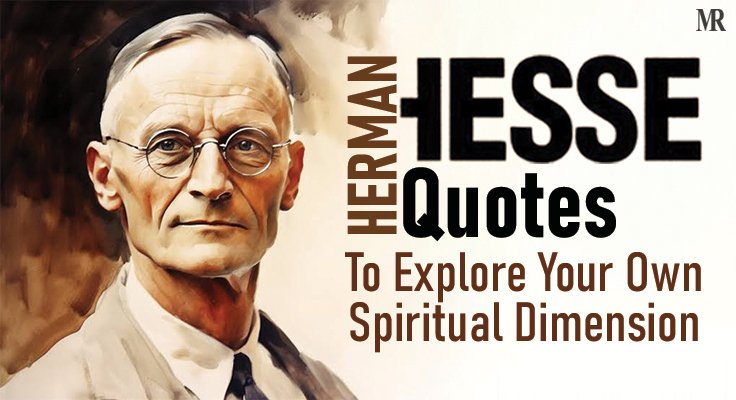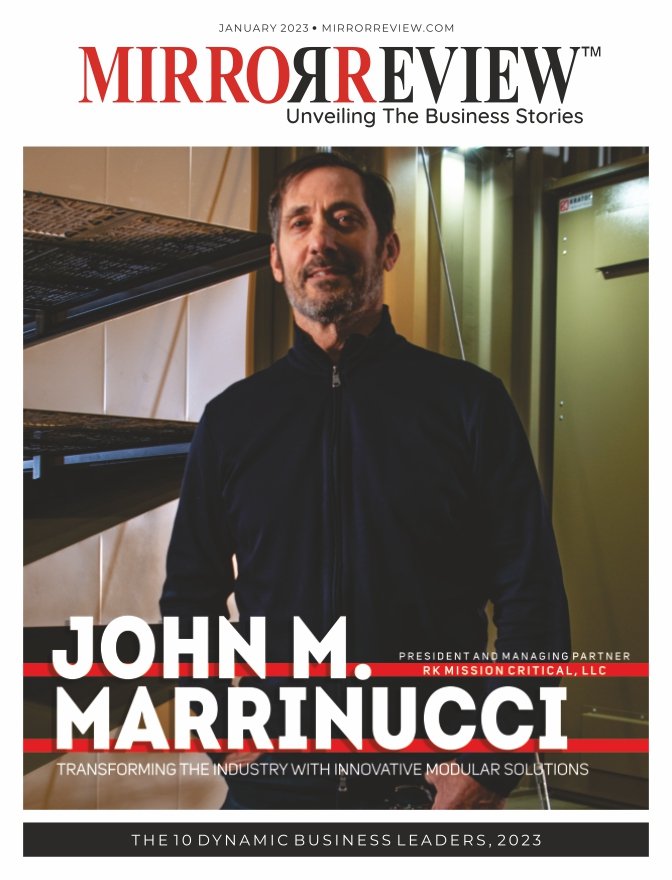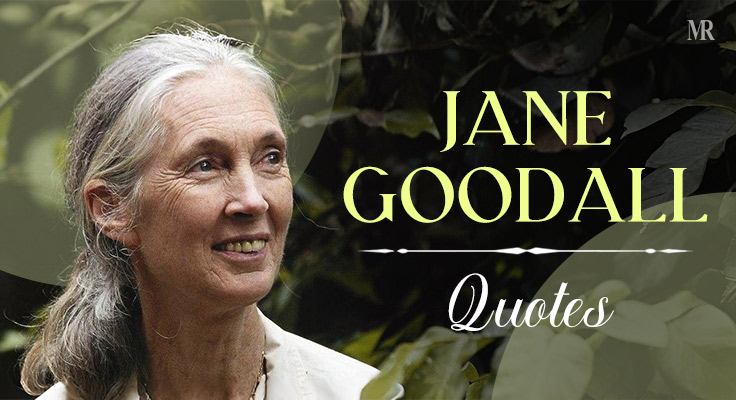One of the most famous German-Swiss poets, novelists, and painters was born in 1877. His works capture themes such as spirituality, self-discovery, and an individual’s purpose in life. His novels are set in exquisite localities. The novels Siddhartha, Steppenwolf, and The Glass Bead Game are considered to be his best works of 20th-century literature. You guessed it right; we are talking about Hermann Hesse. He published his first novel, Peter Camenzind, in 1904, and thus began his career in literature. His novels were so popular both locally and globally that, in 1946, he was awarded a Nobel Prize in Literature. The Nobel Committee praised him for his “rich and thought-provoking writings, which, with the aid of poetic boldness and penetrating insight, have shed light on the complex problems of our age.” Here are some Hermann Hesse quotes to make you believe in spirituality.
- “Some of us think holding on makes us strong; but sometimes it is letting go.”
Holding on to the past or to things that are not good for us can actually hold us back from growth and happiness.
- “Everything becomes a little different as soon as it is spoken out loud.”
The act of speaking aloud can transform our thoughts and feelings. When we say something out loud, it becomes more real and concrete. We are also forced to clarify our thoughts and organize them in a way that is understandable to others. This process of externalization can help us better understand ourselves and our own experiences.
- “The bird fights its way out of the egg. The egg is the world. Whoever will be born must destroy a world.”

This quote suggests that birth and transformation require the destruction of the old. This can be a painful process, but it is necessary for growth. The egg represents the world we know, and the bird represents our new self.
- “You are only afraid if you are not in harmony with yourself. People are afraid because they have never owned up to themselves.”
Fear is rooted in a lack of self-awareness and self-acceptance. When we are not in harmony with ourselves, we are more likely to experience fear because we are unsure of who we are and what we want.
- “One never reaches home, but wherever friendly paths intersect the whole world looks like home for a time.”
We are always on a journey, never truly settling down. But when we find ourselves surrounded by people who care about us, the world feels like a more welcoming place.
- “People with courage and character always seem sinister to the rest.”

People with courage and character challenge the status quo, which can make them seem threatening to others. Those who lack courage or character may feel insecure and threatened by those who are not afraid to stand up for what they believe in.
- “It is not our purpose to become each other; it is to recognize each other, to learn to see the other and honor him for what he is.”
Here the author tells us that we should not try to change each other, but to appreciate and celebrate our differences.
- “As a body everyone is single, as a soul never.”
While each person is physically separate from others, we are all connected at the soul level. We are all part of a larger whole, and our souls are never truly alone.
- “Love of God is not always the same as love of good.”

Our understanding of God and good may differ, and our love for God may not always lead us to act in ways that are traditionally considered good.
- “The marvel of the Bhagavad-Gita is its truly beautiful revelation of lif’’s wisdom which enables philosophy to blossom into religion.”
Hermann Hesse admires the Bhagavad Gita for its profound insights into life, which transcend mere philosophy and lead to a deeper religious experience.
- “To study history means submitting to chaos and nevertheless retaining faith in order and meaning.”
Studying history requires accepting the complexity and uncertainty of the past while still believing that there is a larger purpose and meaning to it all.
- “In each individual the spirit is made flesh, in each one the whole of creation suffers, in each one a Savior is crucified.”

In each person, the divine is embodied, the world’s pain is felt, and a savior is sacrificed to heal it.
- “The bourgeois prefers comfort to pleasure, convenience to liberty, and a pleasant temperature to the deathly inner consuming fire.”
Hesse argues that the bourgeois class prioritizes comfort, convenience, and safety over experiences that are more challenging and rewarding. He suggests that they are afraid to live a life that is truly meaningful, even if it is also difficult.
- “If you hate a person, you hate something in him that is part of yourself. What isn’t part of ourselves doesn’t disturb us.”
Our hatred of others is often a reflection of our own inner selves. When we hate someone, it is because they embody something that we dislike about ourselves, whether it is a trait, a behavior, or a belief.
- “If a man has nothing to eat, fasting is the most intelligent thing he can do.”

Hesse is suggesting that when a person has nothing to eat, the best thing they can do is to focus on their inner resources rather than their external ones. By fasting, they can conserve their energy, improve their mental focus, and build resilience. This can help them stay calm and collected in a difficult situation and better weather the storm.
In conclusion, these Hermann Hesse quotes have a very deep meaning. These quotes tell us to explore ourselves beyond the material body. Hesse’s words underscore the importance of spirituality in our lives, encouraging a deeper connection with our spiritual dimension. In a world often preoccupied with the superficial, these Hermann Hesse quotes serve as timeless reminders of the significance of self-discovery, inner peace, and the pursuit of meaning, guiding us toward a more enlightened existence.
Also Read: 15 Farewell Quotes To Lighten The Goodbye Mood At Work








